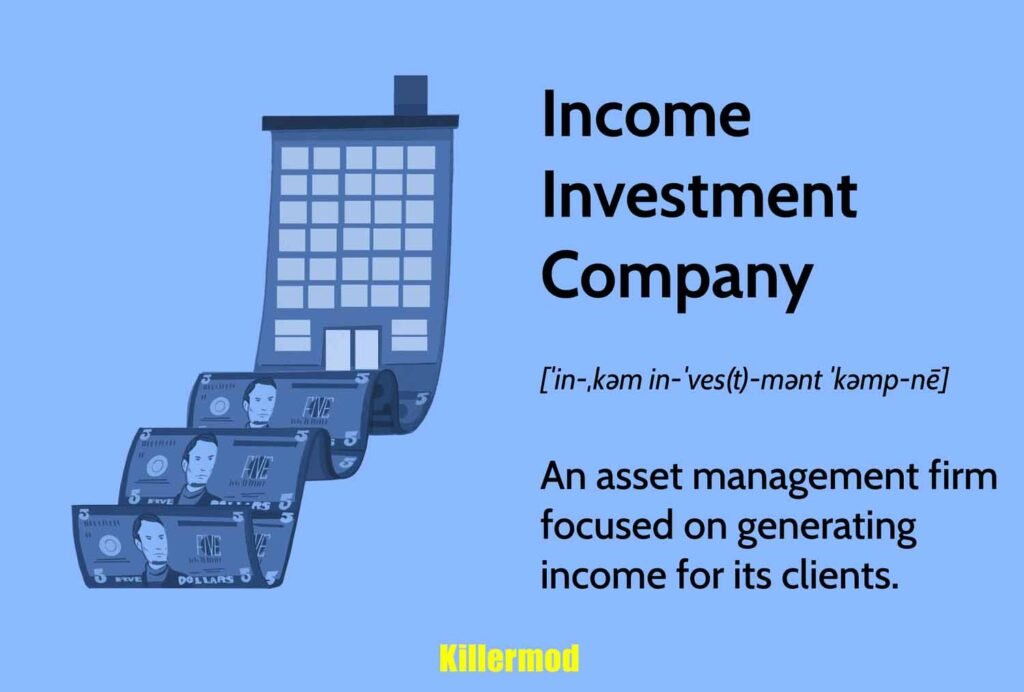In the complex financial world, investment companies act as crucial institutions, and carry capital raising from various investors to the Channel Fund in a range of financial instruments. These companies not only lead to access to the opportunities for money, but also play an important role in promoting economic growth by leading different sectors. It is the essence of extensive investigative companies, their operating mechanisms, comparative analysis of large companies and concludes with insight into their importance in the modern economic scenario.


What Is an Investment Company?
An investment company is a company or trust that operates to invest in investors in financial securities. This is often carried out through either a closed fund or an open fund (also known as mutual funds). In the United States, most investment companies are registered and regulated by the Securities and Exchange Commission (SEC) under the 1940 investment companies law.
An investment company may be known as a “fund company” or “fund sponsor.” They often partner with third-party distributors to sell mutual funds.
This in-depth blog post explores the fundamentals of investment companies, their operational frameworks, benefits to investors, risk factors, a comparative analysis of top-performing firms, industry trends, and the broader implications of their role in shaping global economies.
Understanding Investment Companies
An investment company is a special unit that engages in investing a diverse portfolio of securities from investors, such as stock, bonds and other financial instruments. These companies are structured to manage, sell and enter the market for the public, including portfolio management, record cycling, custody, legal, accounting and tax management services.
Investment companies are primarily categorized into three types:
- Mutual Funds (Open-End Funds): These funds issue a continuous supply of shares, allowing investors to buy and sell shares at the net asset value (NAV) at the end of each trading day. They provide liquidity and are suitable for investors seeking diversification.
- Closed-End Funds: Unlike mutual funds, closed-end funds issue a fixed number of shares that trade on stock exchanges. The market price of these shares fluctuates based on supply and demand, which may be at a premium or discount to the NAV.
- Unit Investment Trusts (UITs): UITs offer a fixed portfolio of securities with a specified termination date. They are passively managed and provide investors with a pro-rata share of the trust’s net assets upon termination.
Each type of investment company offers unique features, catering to different investor needs and preferences.
The Role of Investment Companies in Wealth Creation
Investment companies play an important role in the creation of money:
- Diversification: By collecting the funds from many investors, these companies invest in a wide range of securities, spread risk and increase the return.
- Professional management: Investment companies appoint experienced portfolio managers who make appropriate decisions on behalf of investors, ensure optimal property distribution and management.
- Access: They provide access to different types of investment options to individual investors who may otherwise be inaccessible due to high capital requirements or lack of competence.
- Liquidity: Especially when it comes to mutual funds, investors can redeem their shares in the NAV and provide liquidity and flexibility.
Through these mechanisms, investment companies facilitate increase in personal money and contribute to general economic development.
Comparative Analysis of Leading Investment Companies
In Indian, many asset management companies (AMC) have established themselves as leaders in the industry. A comparative analysis of these companies provides insight into their market status and performance.
1. SBI Mutual Fund
- Assets Under Management (AUM): ₹8.27 lakh crore as of September 2023 .
- Strengths: Backed by the State Bank of India, SBI Mutual Fund offers a wide range of investment options with a strong track record of performance.
- Investor Sentiment: Known for stability and reliability, making it a preferred choice for conservative investors.
2. ICICI Prudential Mutual Fund
- AUM: ₹5.82 lakh crore as of September 2023 .
- Strengths: A joint venture between ICICI Bank and Prudential Plc, offering innovative investment products and high returns.
- Investor Sentiment: Appeals to investors seeking a blend of growth and stability.
3. HDFC Mutual Fund
- AUM: ₹5.25 lakh crore as of September 2023 .
- Strengths: Known for its customer-centric approach and strong performance across various fund categories.
- Investor Sentiment: Attracts investors looking for consistent returns and professional management.
4. Axis Mutual Fund
- AUM: Over ₹3.5 lakh crore .
- Strengths: Gained popularity for its user-friendly digital investment platforms and top-rated mutual fund schemes.
- Investor Sentiment: Favored by tech-savvy investors seeking convenience and accessibility.
5. DSP Mutual Fund
- AUM: ₹1.30 lakh crore as of September 2023 .
- Strengths: Notable for its entry into the top 10 AMCs, reflecting strong growth and performance.
- Investor Sentiment: Viewed as a rising player with potential for significant returns.
Investor Bhavna: It was seen as a growing player for important returns.
Strategic Insights and Future Outlook
The investment landscape is dynamic, influenced by various factors such as economic policies, market trends, and investor behavior. In recent developments:
- Private Equity Challenges: The private equity sector faces challenges in executing investment exits due to market volatility and new tariffs, with firms turning to interim strategies like continuation vehicles to navigate market instability .
- Biotech Sector Slump: Policy uncertainties and budget cuts have impacted the biotech sector, leading to declining access to capital and potential acquisitions .
- Co-Investment Opportunities: Morgan Stanley’s successful raising of $2.3 billion for its North Haven Private Equity Co-Investment Opportunities Fund III highlights the growing interest in co-investment strategies, emphasizing investing alongside sector specialists to build diversified portfolios .
- Fundraising Shortfalls: Providence Equity Partners fell short of its $6 billion target for its ninth fund, managing to raise only $3.7 billion, reflecting broader industry challenges as private equity firms face stagnant mergers and acquisitions activity .

These developments underscore the importance of adaptability and strategic planning for investment companies to thrive in a fluctuating market environment.
Conclusion
Investment companies play an important role in designing the economic landscape, cultivating money for individuals and institutions, diversifying portfolio and motivating professional management. Comparative analysis of large companies such as the SBI Mutual Fund, ICICI Prudential Mutual Fund, HDFC Mutual Fund, Axis Mutual Fund and DSP Mutual Fund show competitive analysis in the industry and reveal the factors that affect the options affecting the alternatives.
While the economic ecosystem continues to develop, investment companies should navigate challenges, embrace innovation and prioritize investor interests to maintain their important role in money creation and economic development. The market is changing, utilizing technological advances and maintaining moral standards will determine their success in the future financial sector.
Note: This article provides general information and should not be considered as financial advice. Consult with a certified financial planner for personalized guidance.

[…] Download Now […]
YEAH